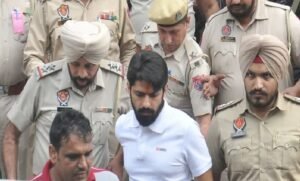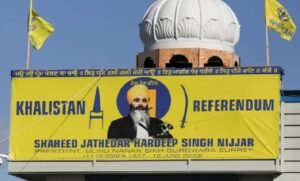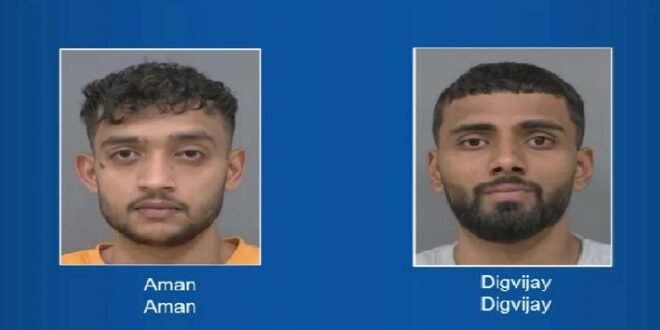09-08-2025
OTTAWA: On a crisp spring morning in Brampton town of Canada’s Ontario province in May, Harjit Singh Dhadda meticulously tied his traditional sage green turban as he got ready for work.
He embraced his daughter Gurleen before leaving for his trucking insurance office in Mississauga near Toronto’s bustling Pearson international airport.
 It was the last time Gurleen saw her 51-year-old father alive. As Harjit reached the car park of his office on May 14, two men confronted him. One of them pumped multiple bullets into Harjit’s body before fleeing in a stolen 2018 Dodge Challenger.
It was the last time Gurleen saw her 51-year-old father alive. As Harjit reached the car park of his office on May 14, two men confronted him. One of them pumped multiple bullets into Harjit’s body before fleeing in a stolen 2018 Dodge Challenger.
Harjit later died of his injuries at a local hospital.
Hours later, two men claimed responsibility for Harjit’s murder in a Facebook post, calling themselves members of a criminal gang led by Lawrence Bishnoi, an Indian national currently imprisoned at Sabarmati Central Jail in the western Indian state of Gujarat.
Barely a month after Harjit’s murder, a businessman in Surrey, British Columbia, and another in Harjit’s town, Brampton, both of Indian origin, were shot. Local authorities say the murders represent a disturbing expansion of criminal networks rooted in India into Canadian territory, led by India’s most notorious organized crime syndicate, the Lawrence Bishnoi gang.
Now, a growing number of political leaders in Canada want the federal government to act, demanding that the Bishnoi gang be declared a terrorist organization.
‘Public safety must come first’
“The terrorist designation enables police to use the necessary tools to investigate and bring this activity to an end. It gives police significant investigative tools,” British Columbia’s Premier David Eby said in a statement on June 17.
 In July, his Alberta counterpart, Daniel Smith, echoed that call. “Formally designating the Bishnoi Gang as a terrorist entity will unlock critical powers, allowing law enforcement agencies to access the necessary tools and resources needed to disrupt operations and protect our people effectively,” Smith said in a Facebook post on July 14.
In July, his Alberta counterpart, Daniel Smith, echoed that call. “Formally designating the Bishnoi Gang as a terrorist entity will unlock critical powers, allowing law enforcement agencies to access the necessary tools and resources needed to disrupt operations and protect our people effectively,” Smith said in a Facebook post on July 14.
Alberta’s Public Safety Minister Mike Ellis said there was credible intelligence indicating the involvement of the Bishnoi gang in extortion and targeted violence in the province and elsewhere in Canada. “The gang originates from India, and ongoing investigations are examining why they are specifically targeting the South Asian community,” Ellis told media in a statement.
Jody Toor, a lawmaker from the Conservative Party in the British Columbia Legislature, and Brampton city Mayor Patrick Brown have also supported designating the Bishnoi gang a terrorist organization.
The Canadian federal government has suggested that it is examining these demands. “There is precedent for criminal organizations being designated this way, and I fully support a thorough, evidence-based approach,” Secretary of State for Combating Crime Ruby Sahota told Al Jazeera. “Public safety must come first, and if a group meets the criteria, it should be listed without delay.”
Amarnath Amarasingam, a researcher on extremism and an associate professor at Queen’s University in Ontario, said that listing the Bishnoi group as a terrorist organization would significantly broaden law enforcement powers. It would allow law enforcement agencies to pursue terrorism-related charges, criminalize recruitment or financial support for the group, seize and freeze assets, and give them greater surveillance powers.
Canadian officials had, in 2024, accused the Bishnoi gang of acting at the behest of Indian intelligence agencies to target critics of the Indian government on their soil. (Int’l News Desk)
 Pressmediaofindia
Pressmediaofindia




